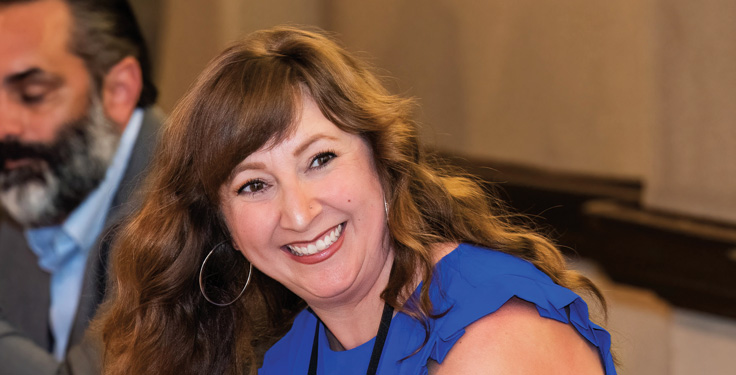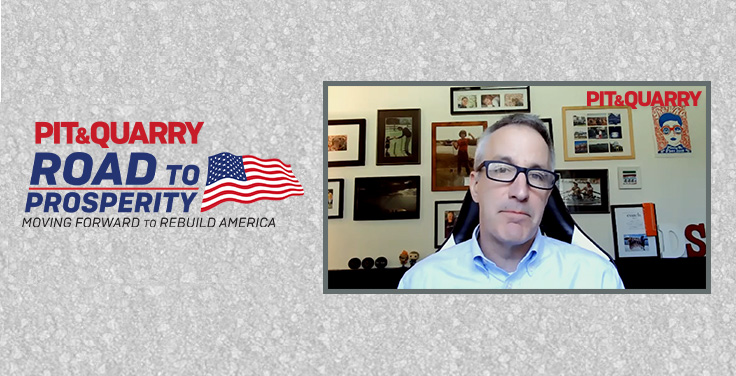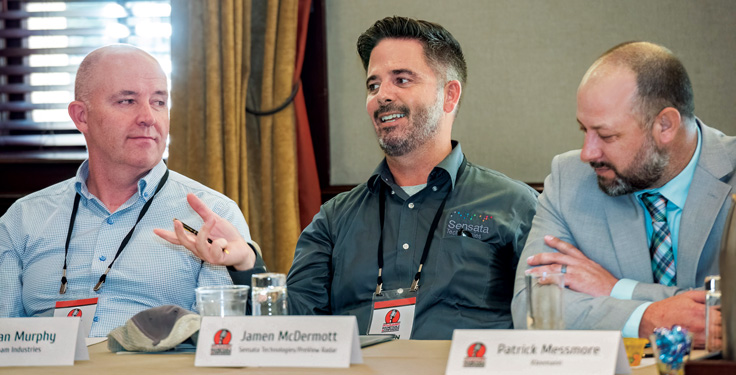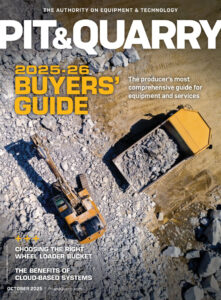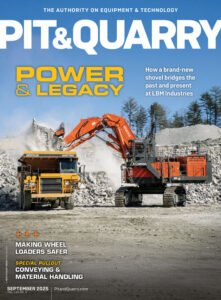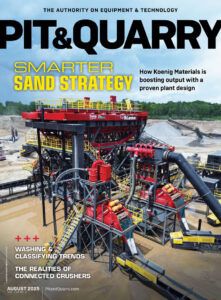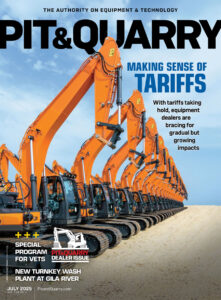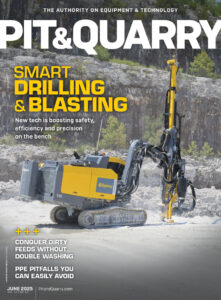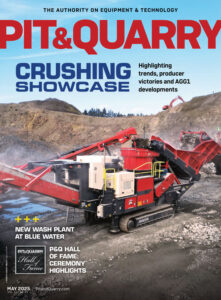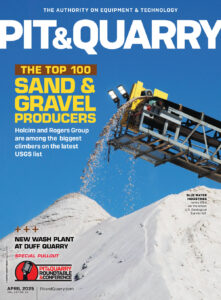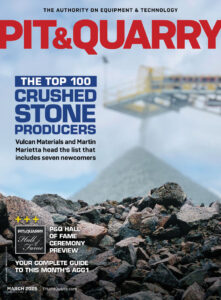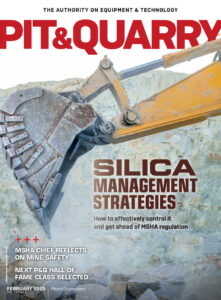The following conversation was edited for brevity and clarity from one of two concurrent Jan. 25 discussions at the 2023 Pit & Quarry Roundtable & Conference. Part one of this conversation can be found here.
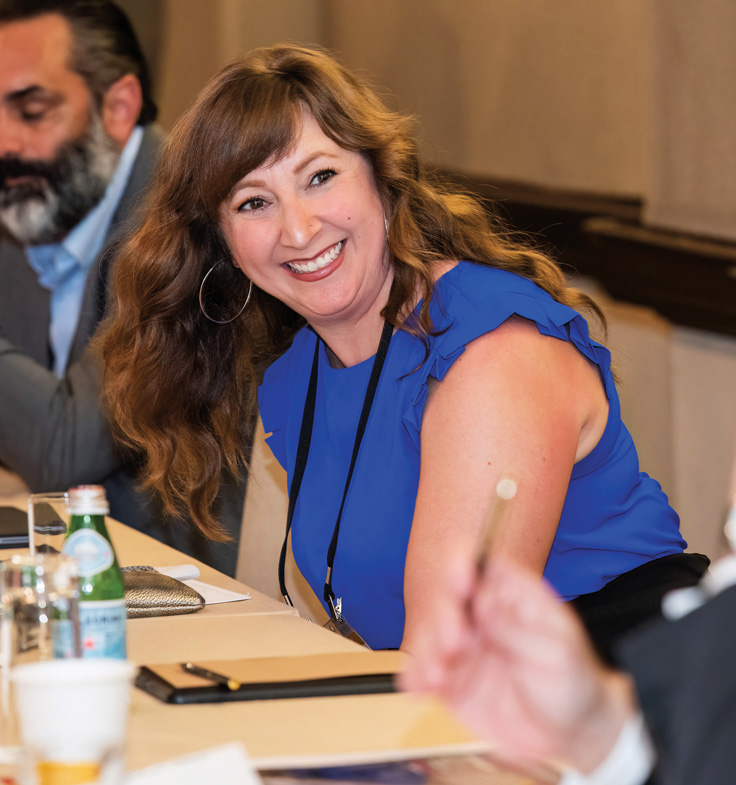
PIT & QUARRY: What does sustainability mean to you and your business? Do you feel any outside pressure from the regulatory side or from the community to operate your business more sustainably? How might outside pressures shape aggregate operations in the coming years, and how does the concept of financial sustainability fit into the equation when making decisions about sustainability?
CHRIS WILLIAMS (CAPITAL MATERIALS): I think it’s incredibly important that all of us as an industry continue to be very diligent about operating within the law, within the spirit of the law and finding opportunities where we can do better. Ultimately, it’s very meaningful that our financial position be strong through that sustainability management, and I would say that we prioritize that over signaling or gestures.
THOMAS HAUN (TURNER MINING GROUP): We all hear the term ‘ESG’ (environmental, social and governance), and there seems to be a lot of attention focused on ‘E.’ We focus a lot on the ‘S.’ We have all talked about how labor is the biggest challenge we’re all facing, and that’s the long-term ‘S’ in ESG. So, when we think about sustainability – and we’re thinking out decades-plus – it’s a lot more than just emissions requirements.
FRANK SUAREZ (VULCAN MATERIALS): This is near and dear to me being a Floridian. Hurricanes wreak a lot of damage in parts of Florida. Our governor [and] elected officials say: ‘When we’re building back, we’re going to build back stronger.’ Tornadoes wreak tremendous havoc and damage in parts of the South. I’m sure the message there, too, is: ‘We’re going to build back stronger, build back better homes, buildings and [more].”
So, I think being proud of what we do, being extra involved in our communities and educating on our products being the foundation to materials like concrete and foundations for pads is essential to sustainability in the long term when it comes to talking about the life cycle of construction.
ERICKA BAXTER (CAPITAL MATERIALS): Having worked very heavily in the environmental sector for quite a few years, when we look at sustainability, the definition is meeting the needs of today without compromising the needs of tomorrow. I think it’s something that we can really improve on. A lot of times people see us as big and bad and polluters – even if we’re following our permits. If we’re not talking about it, if we’re not telling them all the good things that we’re doing, we’re not going to be around tomorrow to continue to meet those needs.
STEWART PETROVITS (ROUTE 82 SAND & GRAVEL): We have operated recycling facilities for 20 years. We do community outreach, [and] we are very philanthropic as a family and as a company. It is not sexy, though. Telling someone you recycle and crush concrete isn’t glamorous. It’s hard to explain by volume [that] we’re the most recycled product in the world, and they still resent the fact that you’re recycling it rather than doing virgin mining. There’s almost no way to win the argument. It’s a really tough argument to make to the general public.
The agency that we go to is the one supporting it. They know the need for it. They’re behind it. It’s the public that just refuses to acknowledge that this is a necessary thing. You don’t want me to mine it, but you don’t want me to recycle it either. What would you like to make your home out of? Dreams and unicorns? So, you try to do outreach, but the nimbyism is very tough. But you just continue. You can’t give up. You have to try to teach people.
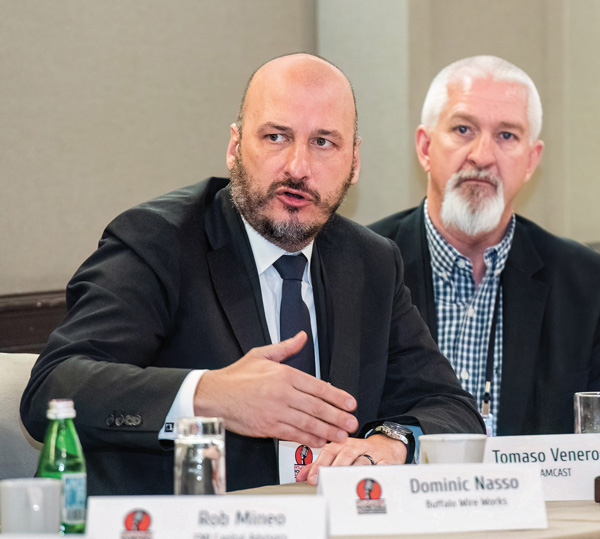
TOMASO VENEROSO (AMCAST): There’s a lot of ignorance around the general population. I encountered this myself in research. When you talk about green energy, you might talk about windmills. But nobody knows that every windmill has 380 tons of copper inside. So where does the copper come from? Primary and secondary mining. Now, recycled copper is less efficient than copper from the ground. There’s an entire ball of wax that you can open up, but I think there’s a lot of ignorance on what the green industry is among the population [and] what mining is.
Everybody thinks mining is only coal – like Snow White and the Seven Dwarfs. We are an integral part of civilization. It’s something that is so simple of a concept, but a ton of people have no idea of what our industry is. [We have to] work very hard, never give up on creating awareness [in] any occasion that you have within the work walls and outside the work environment.
DOMINIC NASSO (BUFFALO WIRE WORKS): Sustainability means continually developing the products of tomorrow sooner, as well as investment in our people, automation, strategic acquisitions and bringing that technology to the mine. We strive to be leaders in that sector.
KAREN HUBACZ (BOND CONSTRUCTION CORP.): Sustainability is vitally important. We have to be our own best advocates always. Not just in your town, but educating members of Congress so that they understand why a certain regulation is egregious and it’s going to effect, maybe, the passing of the infrastructure bill and us implementing that properly. On every level, whether it’s at a federal, state or local level, we have to be our own best advocates always. That’s true sustainability.

